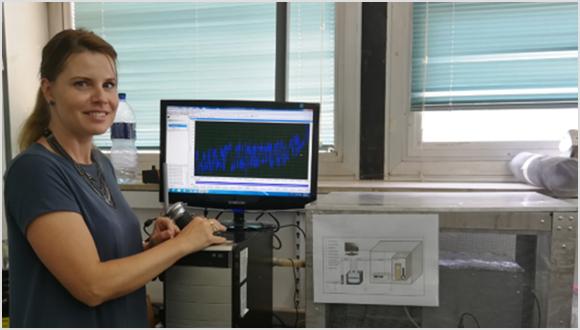דוקטורנטים מספרים - Judi Lax
Utilizing humid air as a possible source for renewable energy
Judi Lax
Supervisors: Prof. Colin Price and Prof. Hadas Saaroni
Renewable energy is drawing every-growing interest nowadays. Yet the dominant source of energy is still fossil fuels - coal, oil and natural gas. Concentrations of greenhouse gases (GHG) in the atmosphere have increased dramatically since the Industrial Revolution. As a result, there is strong evidence that the Earth’s climate is changing, with global temperatures mounting, sea levels rising, rainfall patterns changing, and extreme weather events becoming more frequent.
Hence, alternative solutions that even partially reduce fossil fuels will not only mitigate climate change, but will also improve the quality of our air and water, while making us more energy-independent. In addition, in developing countries, where electricity is not available in rural areas, new sources of clean energy will enable their development, while avoiding environmental damage associated with GHG pollution.
We attempt to use humid air as a source of renewable energy. Experiments show that certain metals can acquire spontaneous charge build-up when exposed to high Relative Humidity (RH) (>50%). Different metals charge with different polarity, due to the selective adsorption of water ions (OH- & H+). Using two different metals leads to voltage accumulation, acting as a capacitor, reaching 0.8V - half the voltage of an AA battery.
Our initial results confirm that charge is built up under high RH conditions, while different types of metals reached varied amounts of electrical potential, up to 0.9V. Moreover, as long as the RH remains high – the voltage on the metals remains high. We also realize that some metals accumulate relatively small electrical potential while other metals do not acquire charge at all.
If alternative energy can be produced by the condensation of water droplets, we will have the foundation for developing an innovative renewable source of energy that will be most valuable in regions with high RH. We therefore plan to explore this phenomenon further and build a prototype battery that runs solely on atmospheric humidity.


